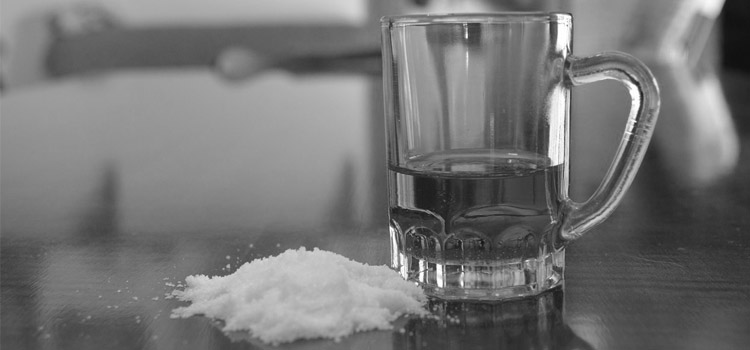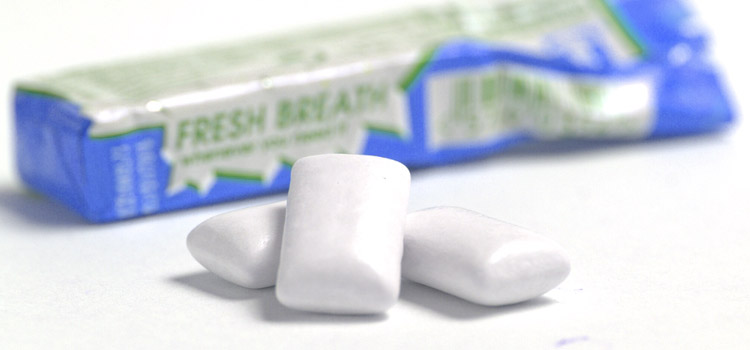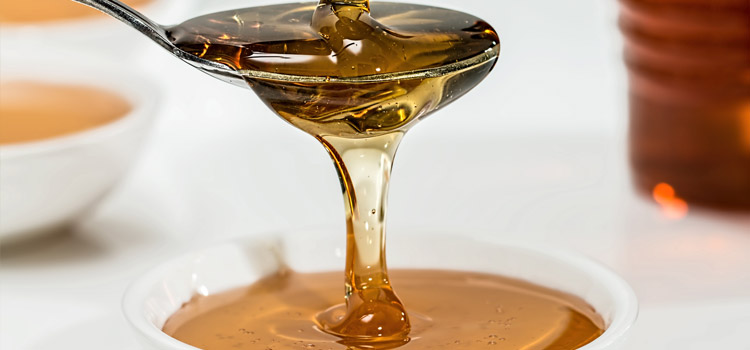Sometimes the cause of your laryngitis is obvious. You many have been screaming along at a concert the night before, or perhaps you annually lose your voice when pollen season arrives. Other times, the cause of that lost voice and irritated throat can by more mysterious. Viruses are a frequent culprit in laryngitis cases, but a bacterial infection can also lead to the temporary condition.
Whatever the root cause, the symptoms are usually the same. Laryngitis occurs when vocal cords swell, making it difficult — or even impossible — to talk above a whisper. Coughing, sore throat or a tickling sensation may also accompany the hoarseness. Often, laryngitis home remedies can do much to help ease your symptoms. 1
Laryngitis Home Remedies
The list below explores some of the most potent and scientifically proven home remedies available today that offer relief for the condition known as laryngitis.
Salt Water Gargle

Gargling with salt water is invaluable for helping you ease that soreness and lose some of the hoarseness. The warmth is soothing on your throat, while the salt not only has antibacterial properties but draws excess water from your vocal chord tissues, helping to reduce the swelling. 2
As a bonus, this cure is one of those laryngitis home remedies that couldn’t be easier to prepare! Run the tap until the water is warm, then fill an 8-oz. glass or mug. Next, add about ½ teaspoon of common table salt, and stir the water vigorously until the salt crystals dissolve.
Gargle with about a third of the solution at a time. With your head tilted backward, hold the salty solution in your throat and gargle for about 30 seconds. Repeat this two or three times, or until the salt water in your glass is gone. 3
The Gum Cure

Your favorite pack of chewing gum can be invaluable when you are coping with the dryness associated with laryngitis. The continual chewing motion needed to enjoy gum helps encourage saliva production. That moisture, in turn, reduces irritation. Keep plenty of gum on hand, and chew as often as is practical. (By the same token, avoid substances that will dry you out, including caffeinated beverages.) 4
Home Steaming

If you’ve ever given yourself a home facial, chances are you know the ropes for steaming. As it turns out, the same methods that open your pores also encourage that all-important moisture that helps treat laryngitis symptoms.
Start by putting a kettle of water on the burner to boil. If you wish, add some aromatic herbs to the heat-safe basin or sink in which you’ll be pouring the water — thyme, rosemary and, lavender all have antiseptic properties. Have a large, clean towel on hand for the moment the water boils. Once it does so, pour the boiling water into the basin, and cover your head and the basin with the towel, to trap the escaping steam. Breathe in the steam as deeply as you can, taking care not to lean uncomfortable close to the high-temp water. Alternatively, you can purchase a specialty face steamer which makes things easier. 5
Herbal Teas

Perhaps one of the most direct — and tasty — ways to treat your laryngitis is with frequent cups of herbal tea. The University of Maryland Medical Center recommends several types found to be helpful for those suffering from laryngitis; you’re bound to find at least one at your local health food shop or regular supermarket.
Marshmallow leaf or root tea is soothing for irritated throats because it appears to help coat the throat as you drink it. It may not sound like a good thing, but the herb’s mucilaginous quality is exactly what makes it such a boon for throat issues such as laryngitis. Also sharing this mucilaginous quality is slippery elm; like marshmallow root, it is readily available in tea form.
Other strong choices for herbal teas to treat laryngitis include peppermint and eucalyptus, both of which are used widely for their soothing and decongestant properties. Licorice root is also considered a soothing tea for irritated throats.
Make the tea as directed on the package, and consider doubling or tripling the serving amounts in order to keep a thermos of tea handy throughout the day. Even more importantly, check with your doctor if you are taking other medication or have ongoing health concerns, or if you are pregnant or breastfeeding. Several herbs, including licorice root, can have negative interactions with medicine or can lead to health complications.
Honey

Long prized by vocalists for its soothing, loosening effect on the vocal cords, honey is the ultimate in simple home remedies. Just add a spoonful or so to a cup of warm water, or to any of the herbal teas mentioned above. This home treatment is a gentle one, but shouldn’t be given to children before their first birthday.
Laryngitis Home Remedies Precautions
Laryngitis usually resolves itself within a week or two, especially if allergies, vocal strain or a virus was the source of the problem. If your voice just won’t return, however, contact your doctor. It’s possible you have a bacterial infection that will need to be treated with antibiotics, or that there is a more serious problem that is causing the hoarseness. 6
Sources
- Laryngitis – University of Maryland Medical Center ↩
- Laryngitis – Lifestyle and home remedies, Mayo Clinic ↩
- Cold remedies: What works, what doesn’t, what can’t hurt, Mayo Clinic ↩
- I lost my voice — Now what?, Go Ask Alice (Columbia University) ↩
- Get Rid of a Sore Throat Naturally: Home Remedies, University of Pittsburgh Medical Center ↩
- Laryngitis – Complications, Mayo Clinic ↩
